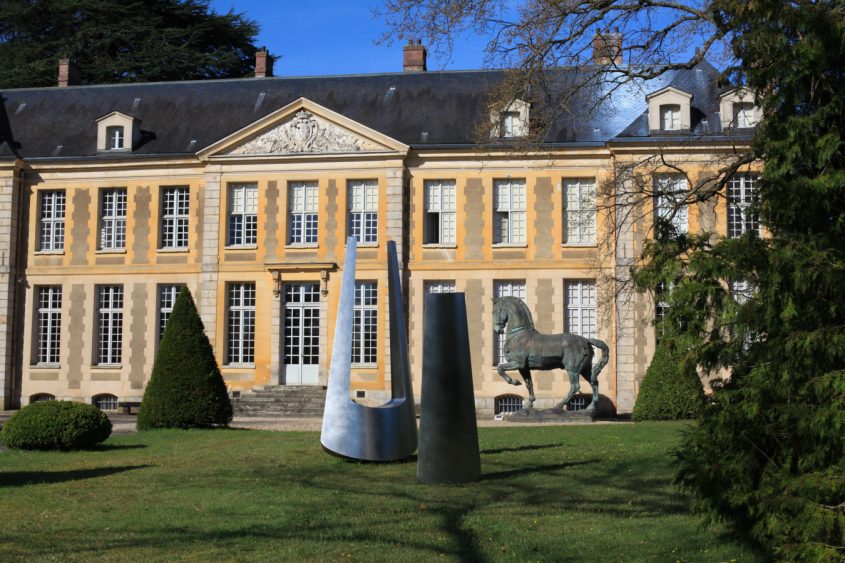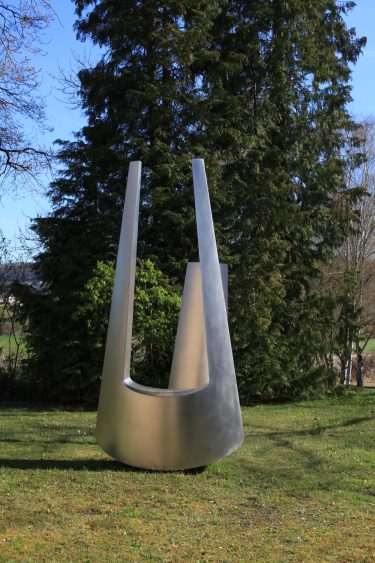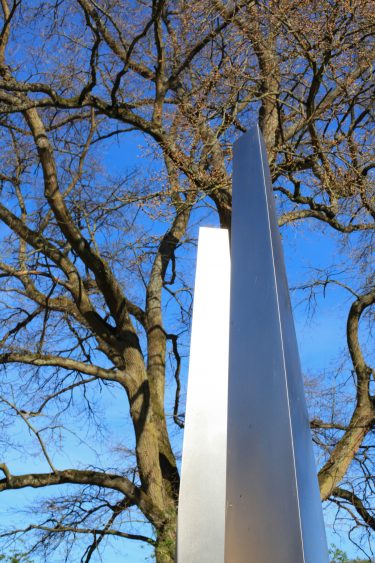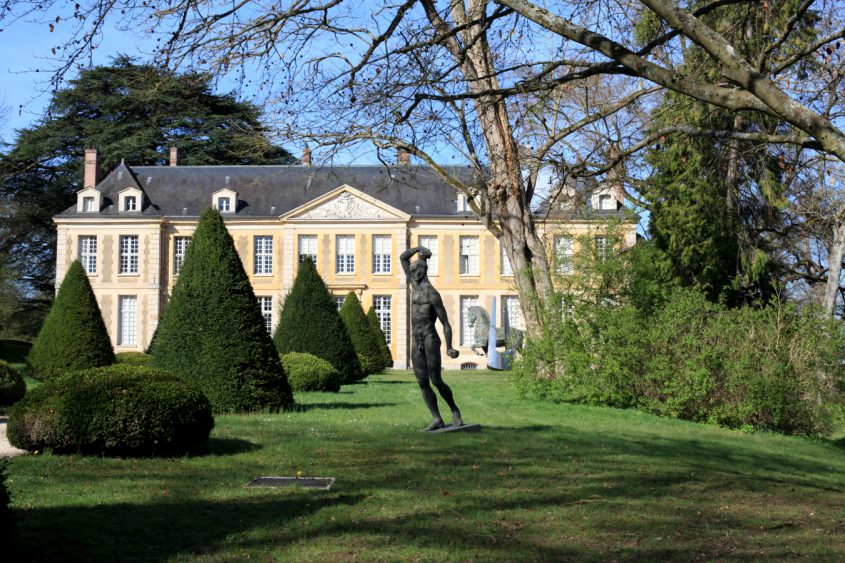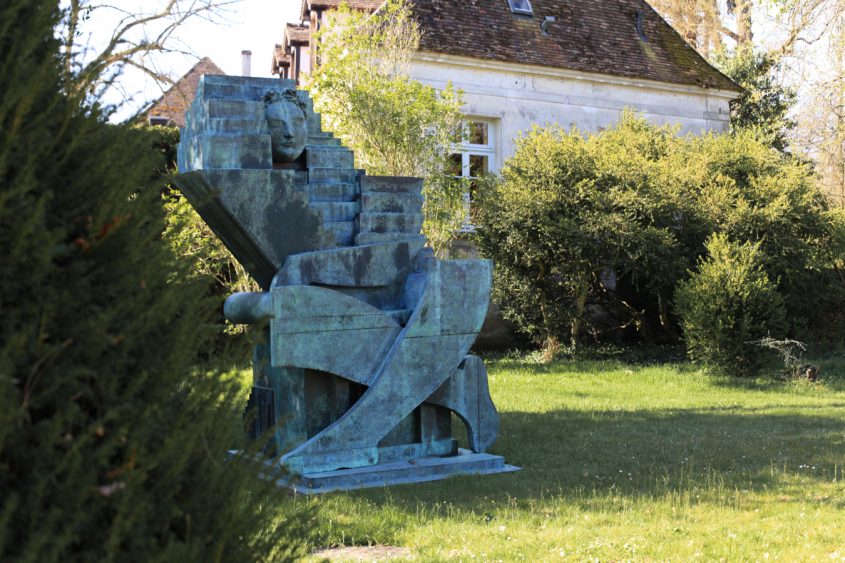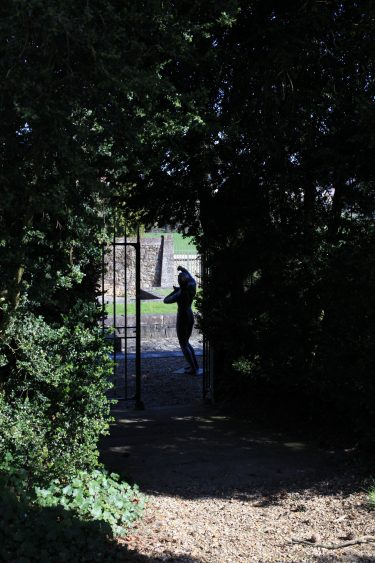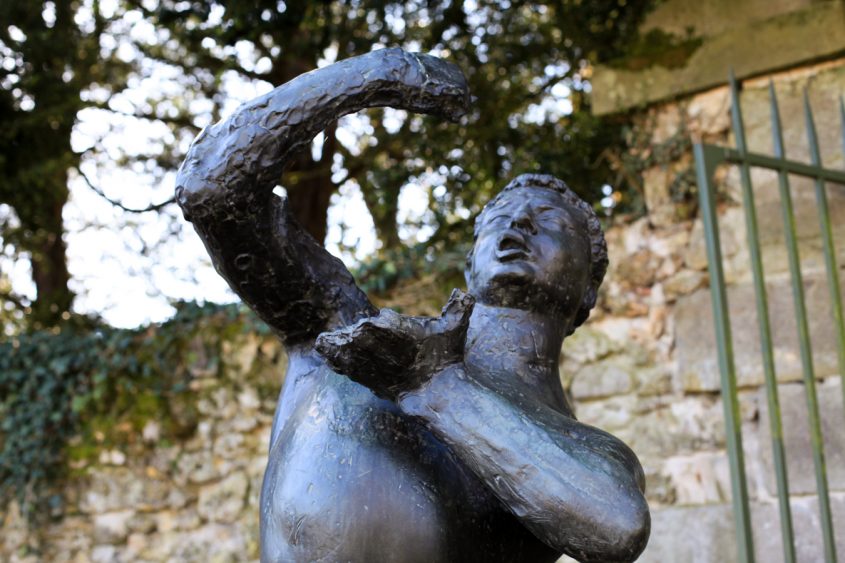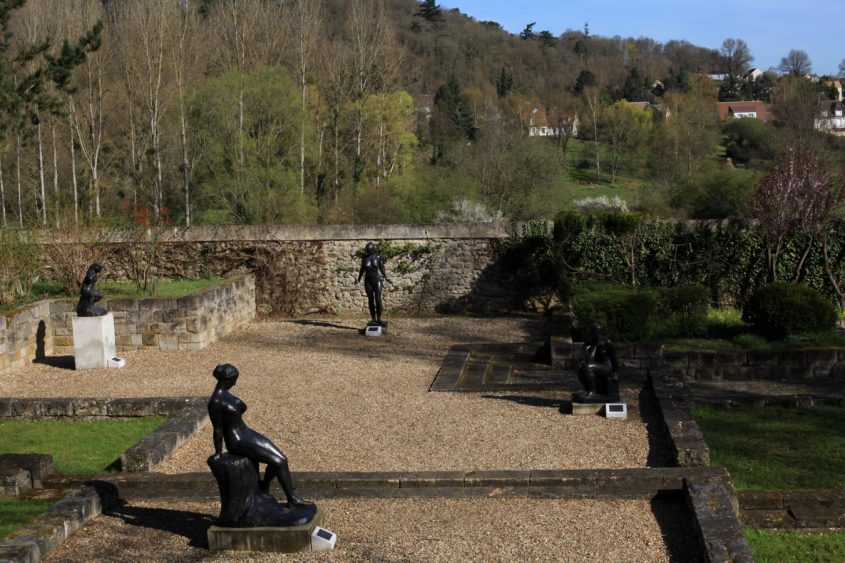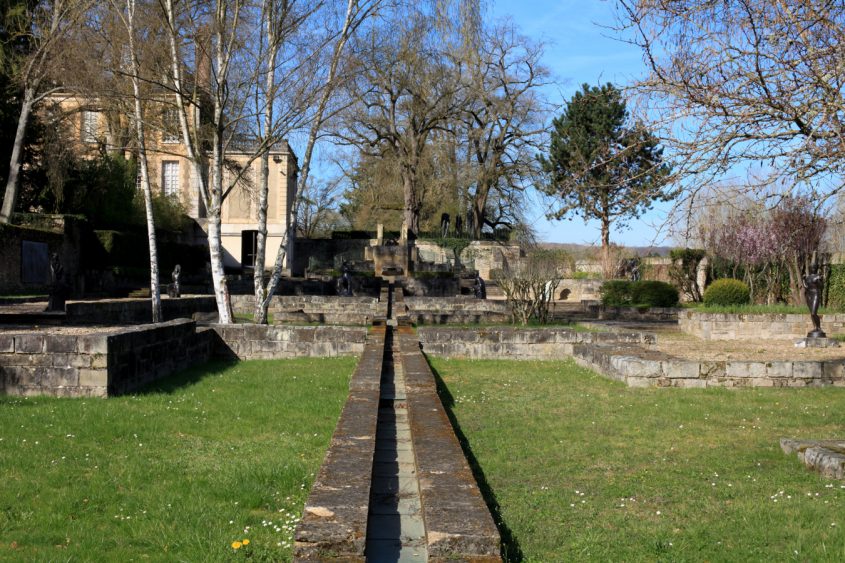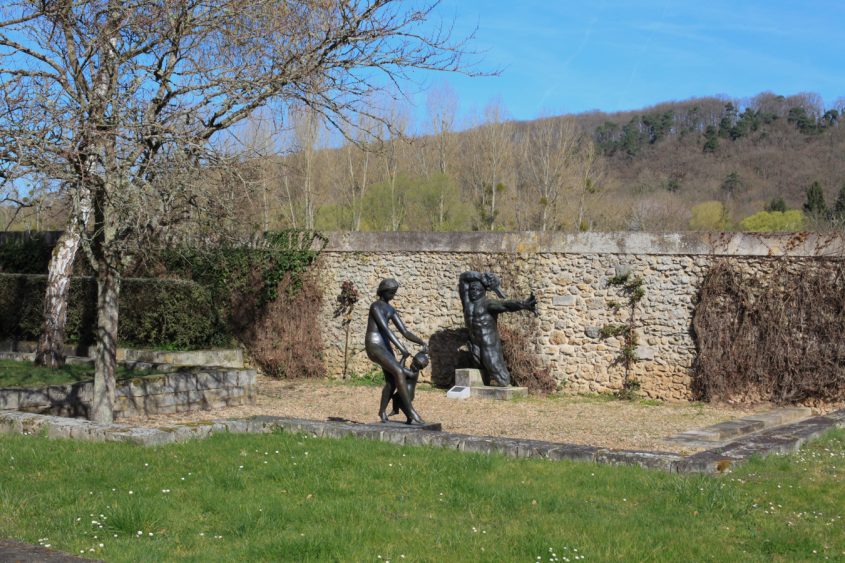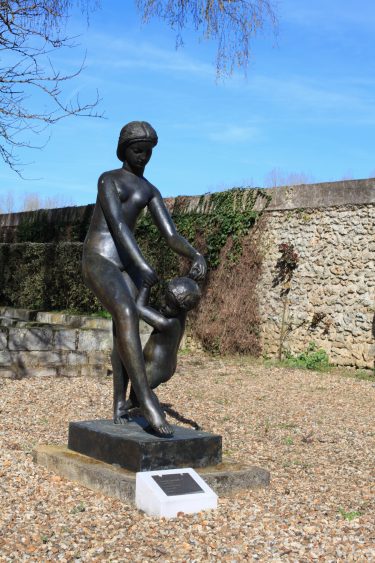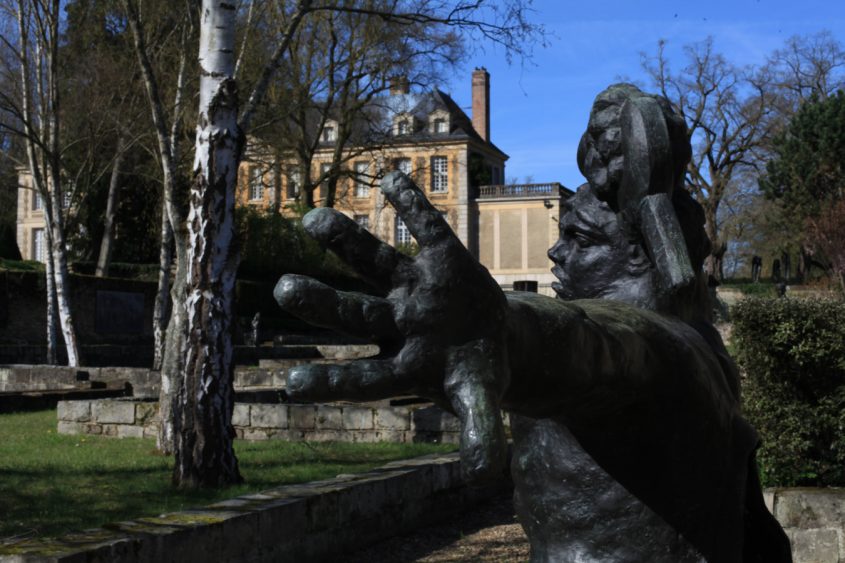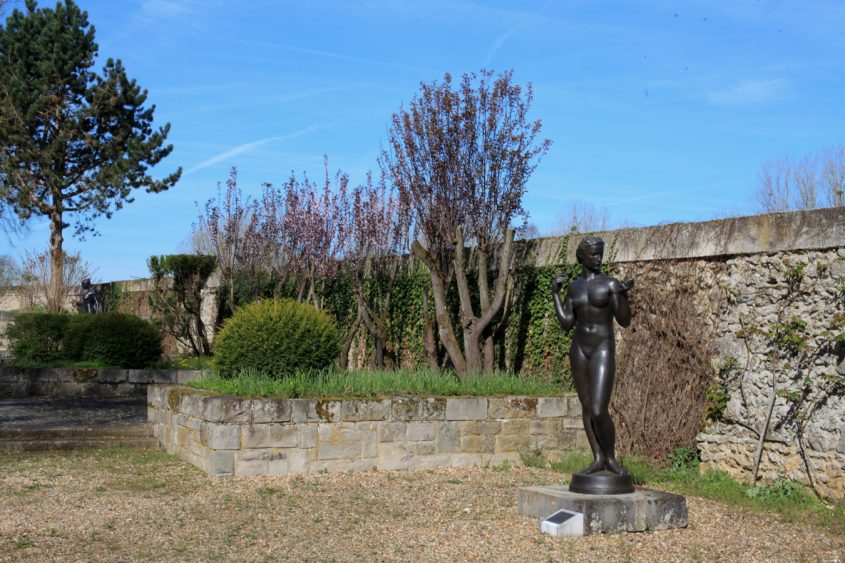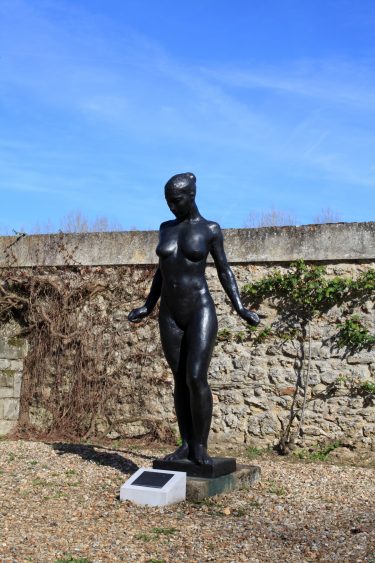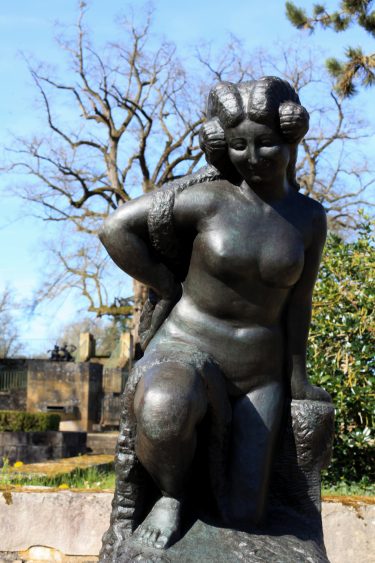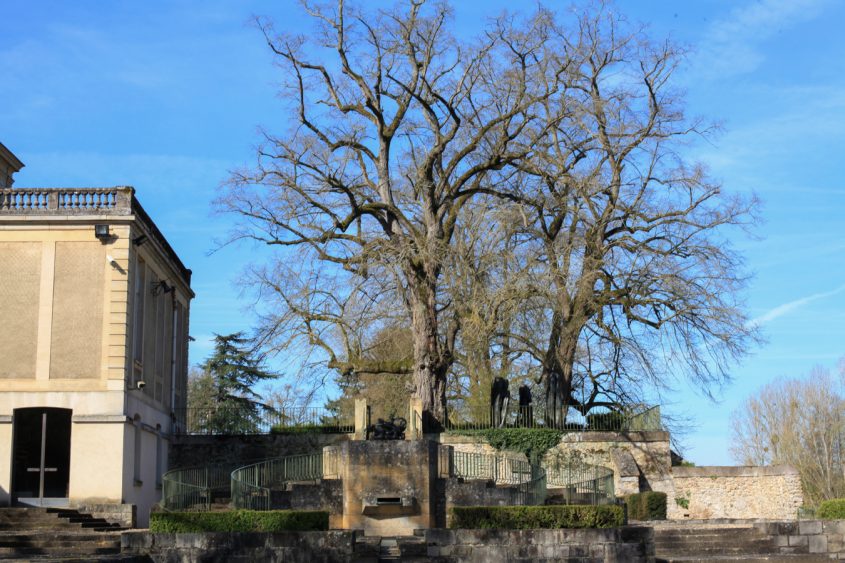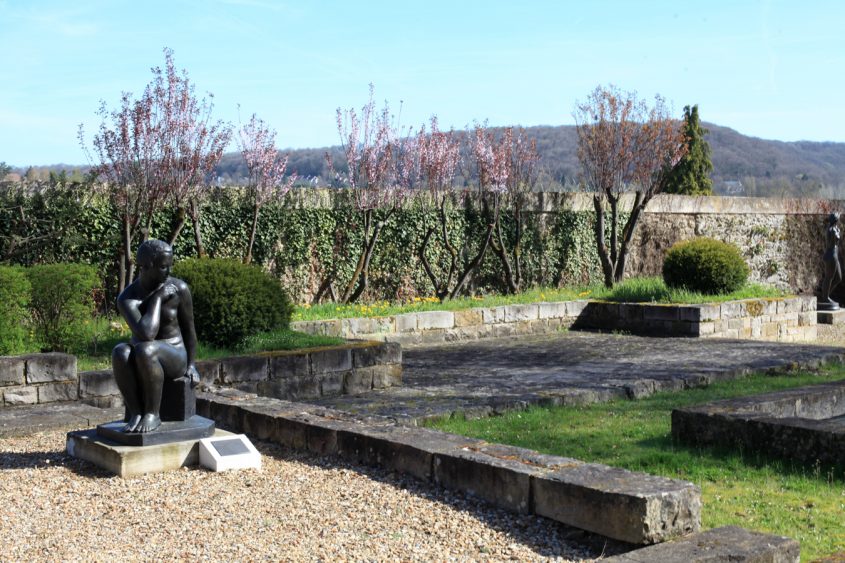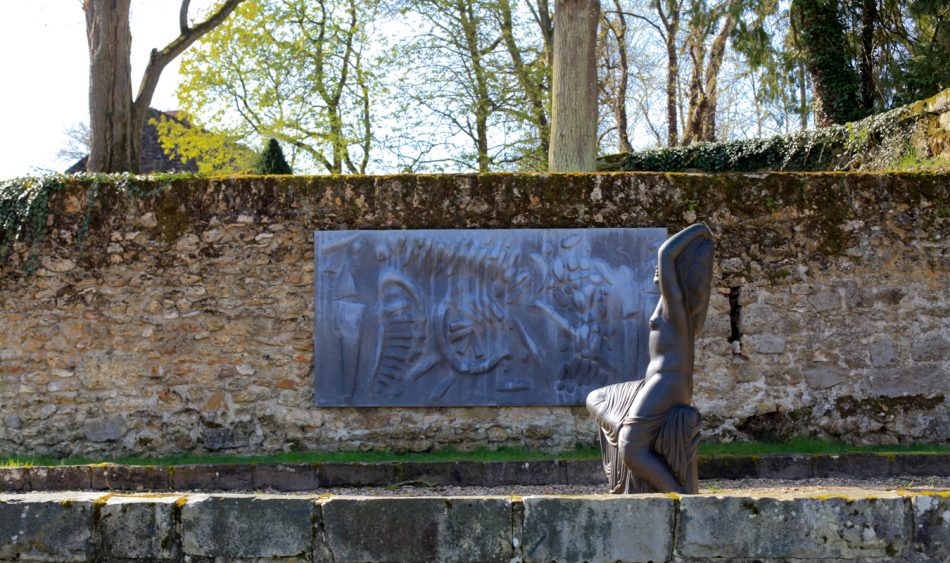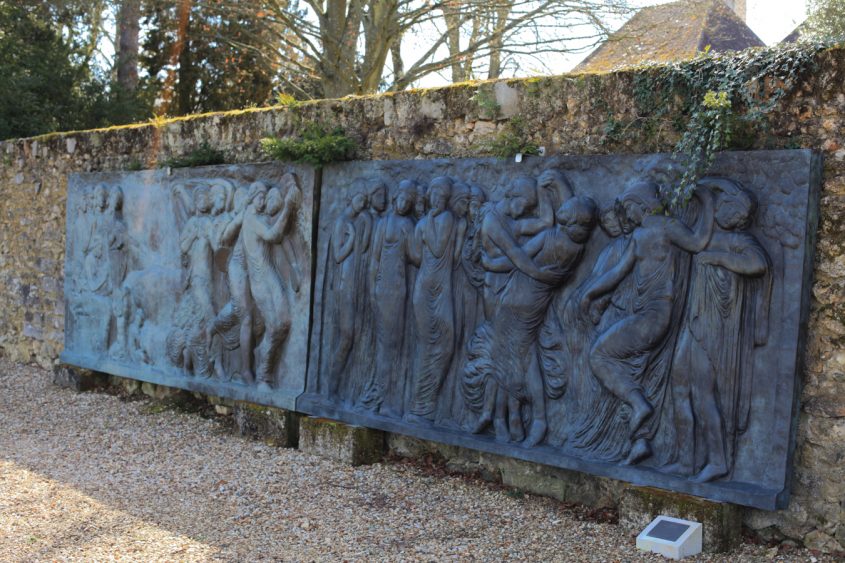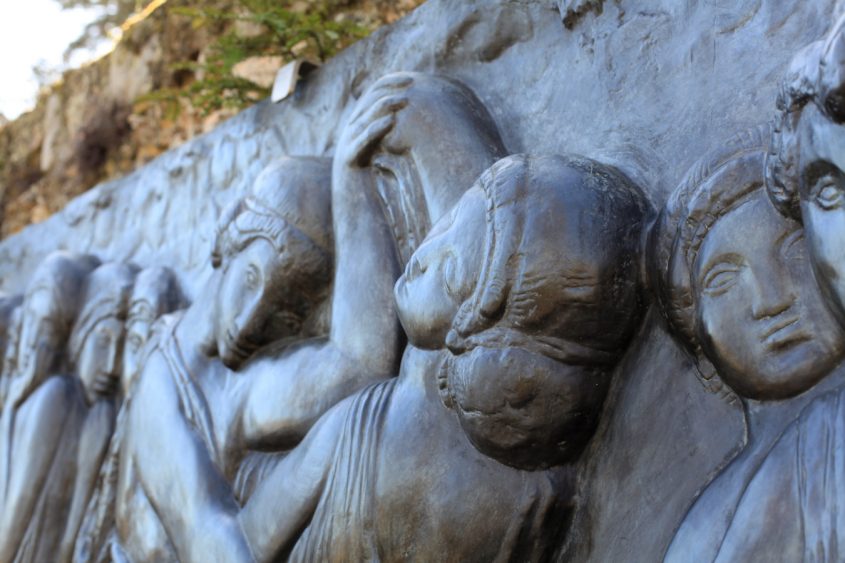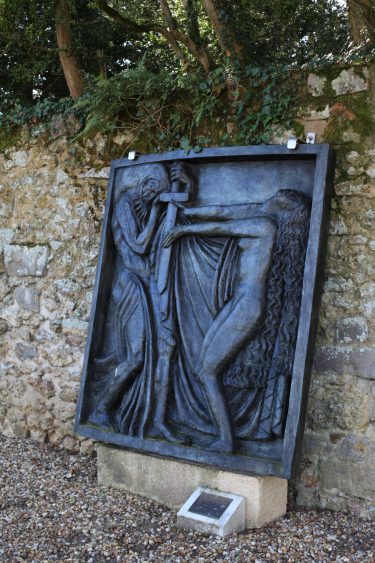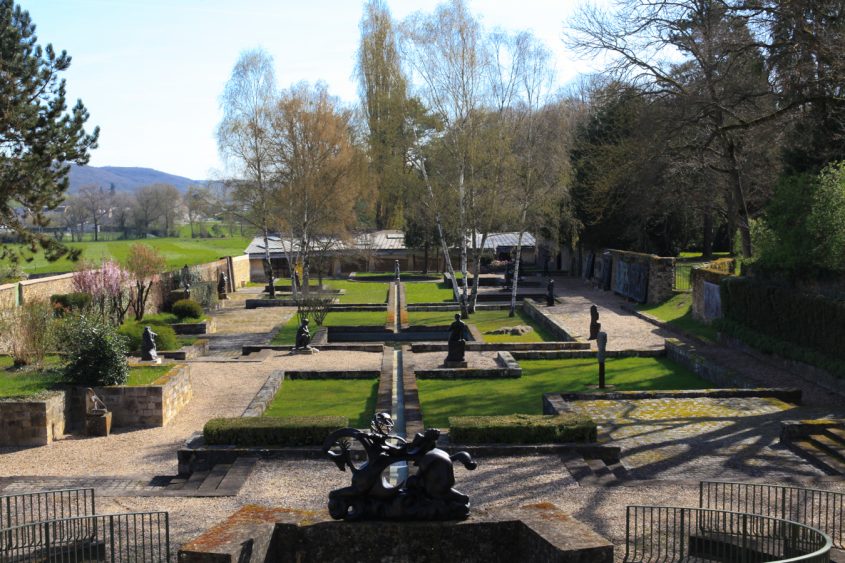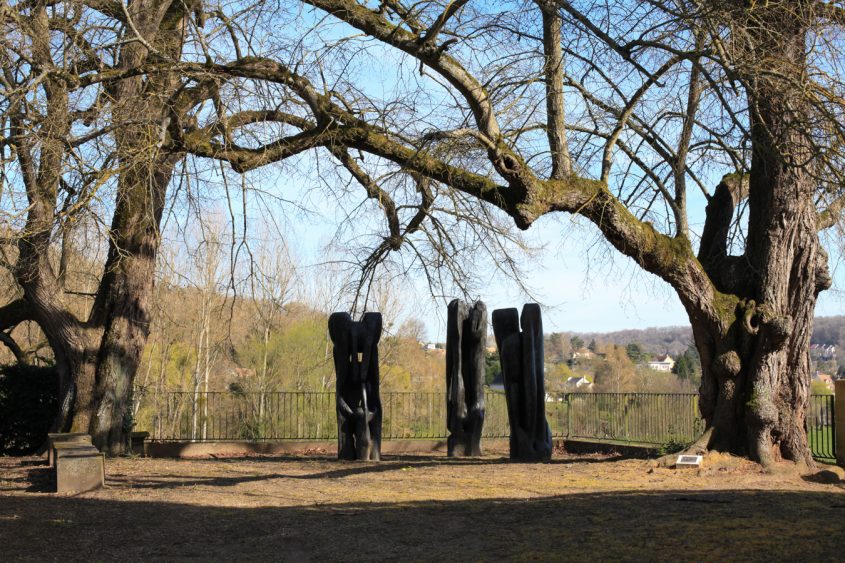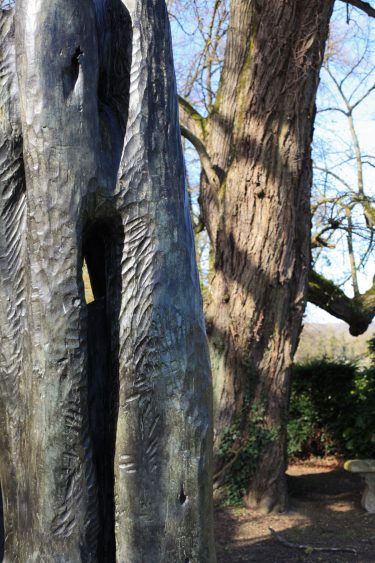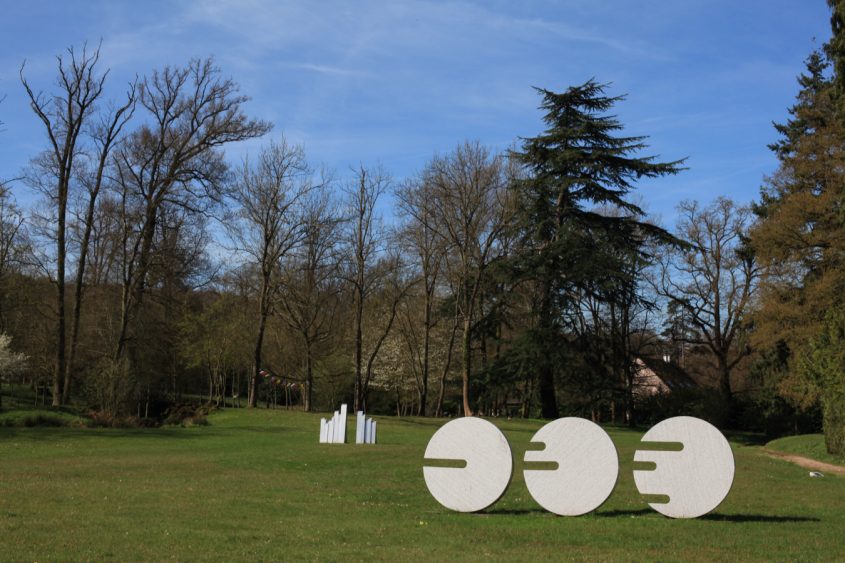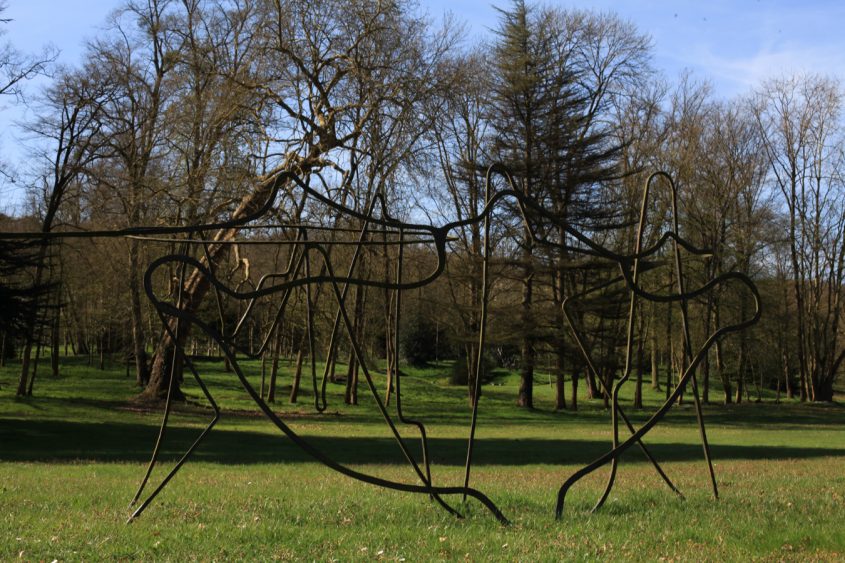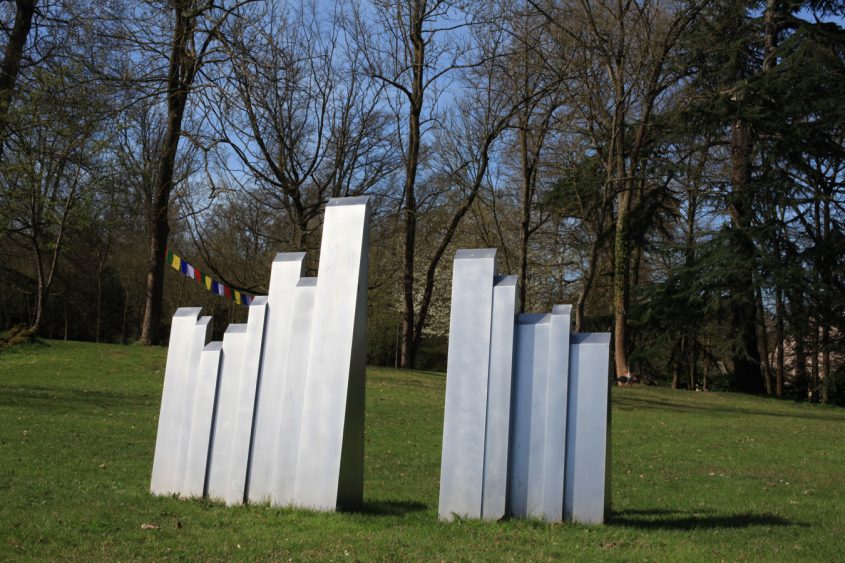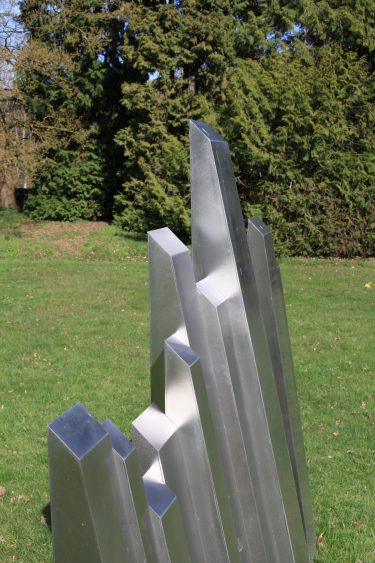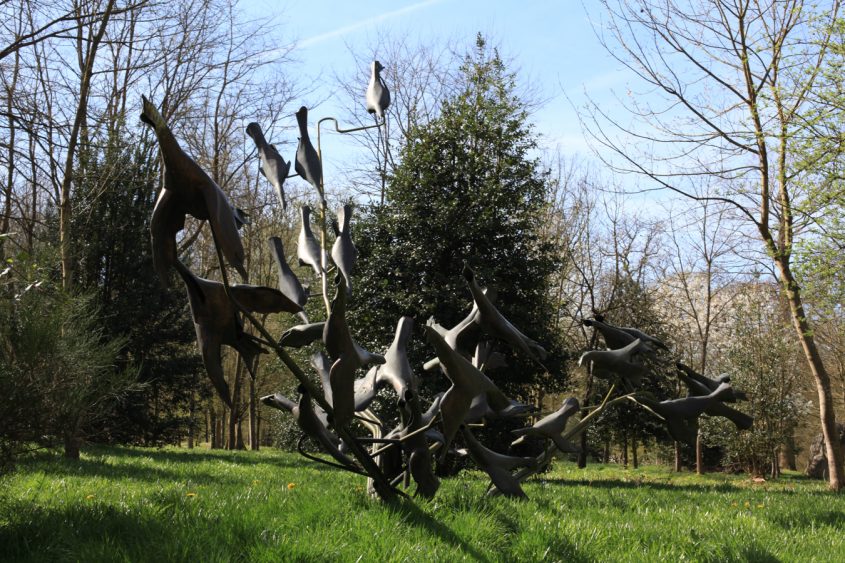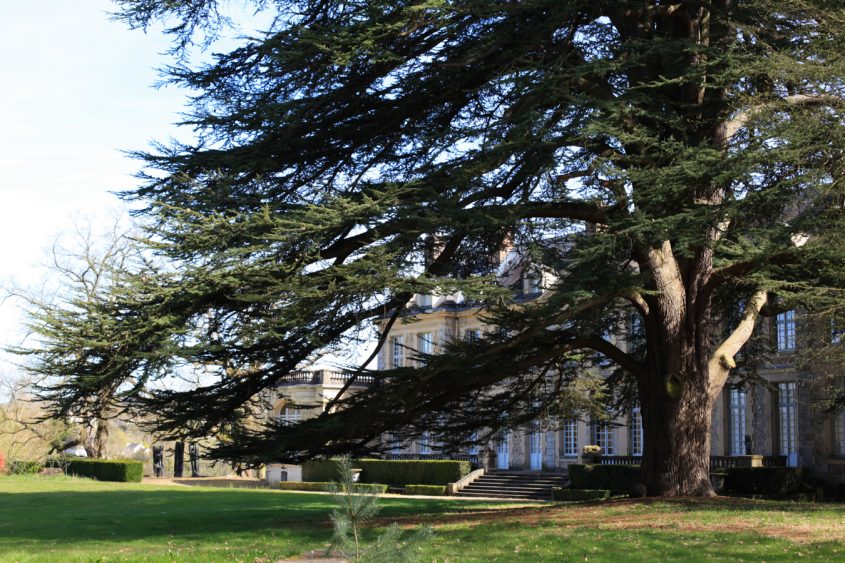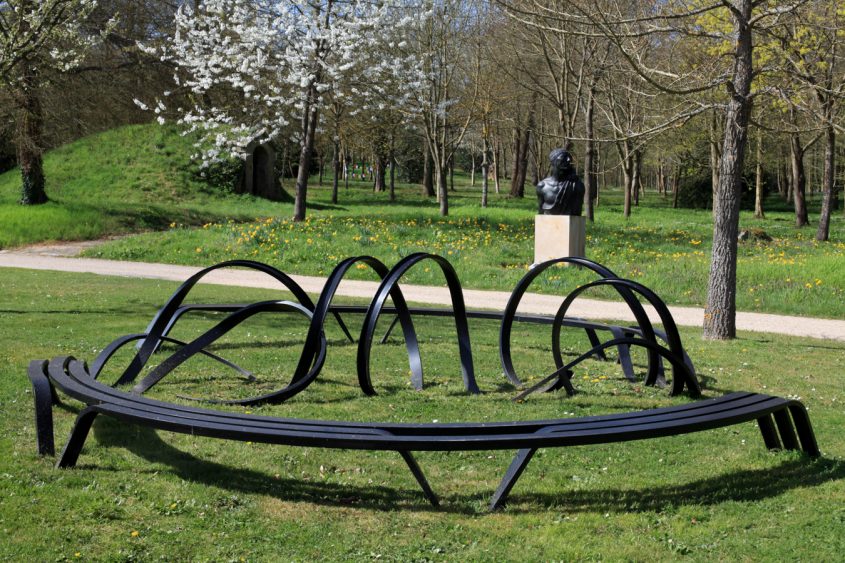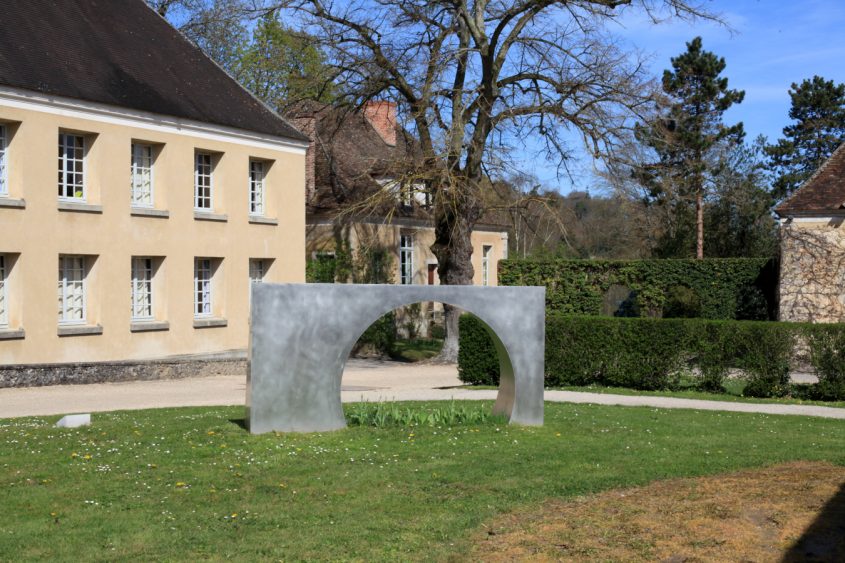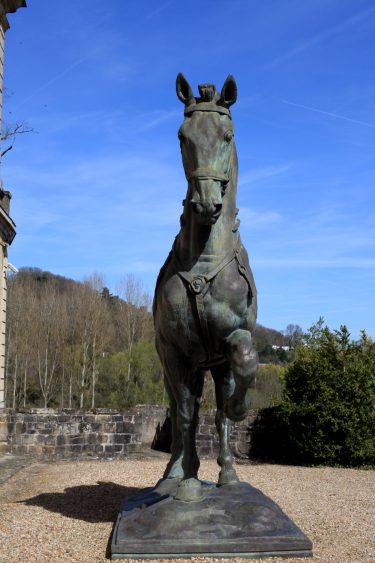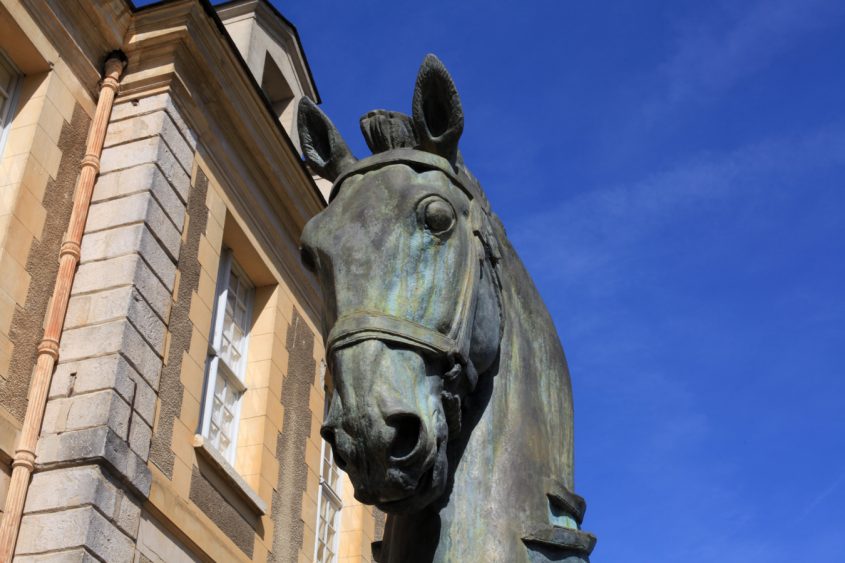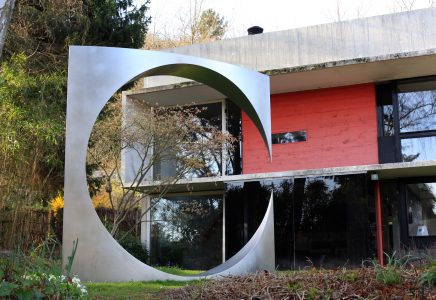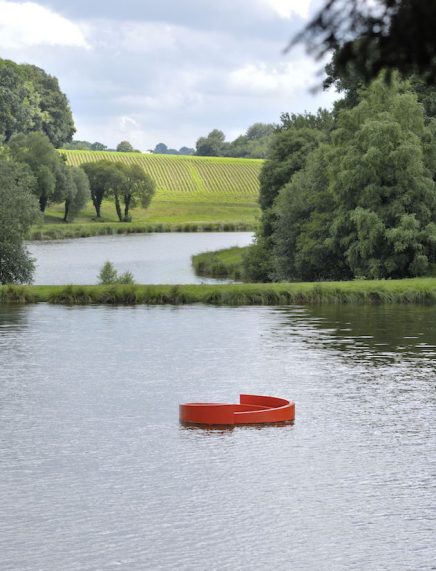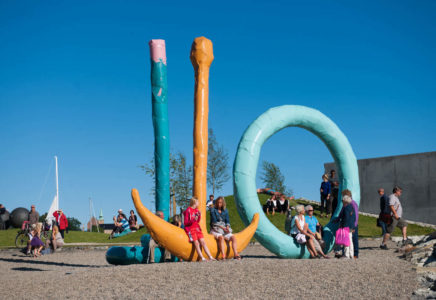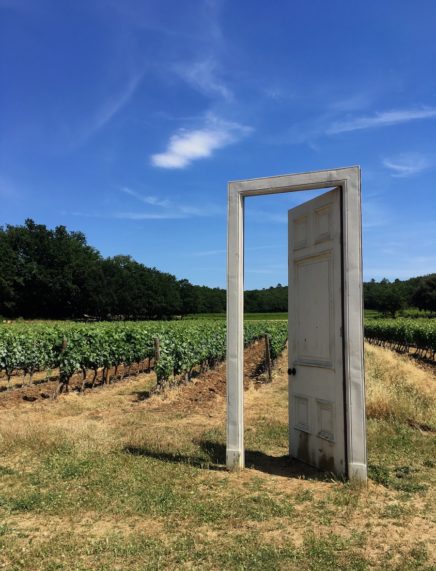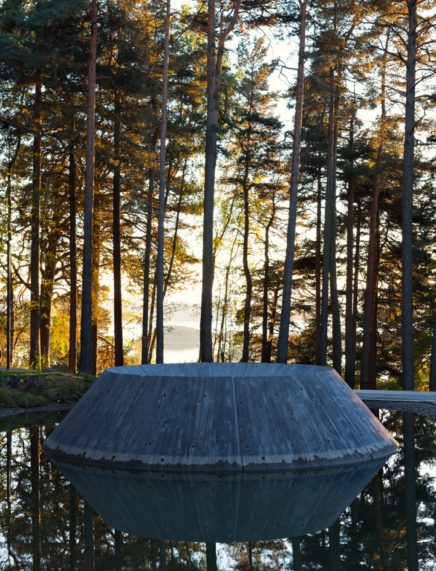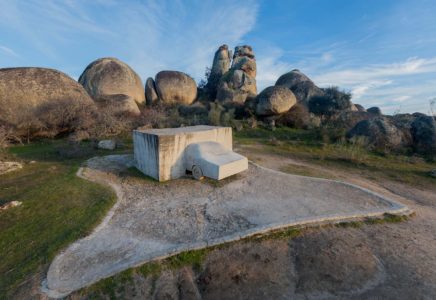Outdoor sculptures at the Fondation de Coubertin
Located an hour by train from Paris in the regional natural park of the Haute Vallée de Chevreuse, the Fondation de Coubertin is a surprising site that spreads out on 200 acres of land in the tranquility of the countryside.
The story of the Fondation goes back to the 1950s, and starts with the fortunate encounter of Yvonne de Coubertin, heiress of the estate, education advocator and “resolute humanist”, and Jean Bernard, artist, stone carver, son of sculptor Joseph Bernard and “compagnon du devoir” (member of « Compagnonnage », a French association of craftsmen). Driven by common values and ambitions, they created together the Association pour le développement du Compagnonnage rural in 1950, which ultimately became the Fondation de Coubertin in 1973. Its core mission is to provide training for traditional crafts professions – in woodwork, stonework and metalwork – and to protect cultural heritage and know-how.
Every year, the Fondation welcomes about thirty fellowship holders (selected upon application) for an eleven-month vocational training, which includes cultural education (world and art culture) and professional education through theory classes and hands-on workshops. Within the Fondation, the Ateliers Saint-Jacques and the Coubertin Foundry now work in partnership with institutions such as the Palais du Louvre or the Château de Versailles, as well as for the restoration of monumental sculptures by contemporary artists such as Cow Up a Tree, by John Kelly, which is now installed in front of the Opera House in Cork (Ireland). The expertise of these workshops is internationally renowned.
It is within this estate, and more specifically in the Jardin des bronzes and in the park, that you can discover part of the collections of the Fondation de Coubertin as well as loans from public institutions such as the Musée Bourdelle, from artists or their beneficiaries, such as Marta Pan — who used to live a few miles from the Fondation.
The Jardin des Bronzes
The Jardin des bronzes (Bronze Garden) is accessible through a small gate hidden in the bushes, a bit like in Alice in Wonderland. But be reassured, there is no tumbling down a hole or running after rabbits here. The garden, however, holds just as many wonders. What used to be an orchard was rehabilitated by architect Robert Auzelle and is organized around a small central canal, which runs through it and connects several water basins. On each side of the canal, terraces host figurative bronze sculptures dating from the mid-19th century to today. These belong to the estate’s collection and are therefore mostly from Joseph Bernard, Antoine Bourdelle, Robert Wlérick and Rodin, among others. Fauns, bacchantes, young girls dancing and contemplating nature animate the life of the garden and lead you from one sculpture to the next.
The Park
A stone stairway connects the Jardin des bronzes to the park of the castle. To the right, three figures by Etienne-Martin discreetly take shelter in the tree shade. Half human, half plant, the three bronze sculptures composing Personnage III (1967) were cast from originals that were carved in acacia wood. The remarkable work of material blends perfectly with the bark of the surrounding trees.
Upon entering the park, Marta Pan’s Trois disques fendus immediately catches the eye of the visitor. It consists in three discs of white granite placed next to each other, facing the castle, about 40 yards from it. It is easy to recognize the Hungarian artist’s pure and precise lines, enhanced by the brightness of the white Bethel granite. The discs are cracked in different places and have different thicknesses, from 8 inches at the bottom to 2.5 inches at the top.
A bit further stands another sculpture by Marta Pan, Passage (2004), made of stainless steel, a material favored by the artist which satin finish creates amazing color schemes mirroring the light of the sky.
In a totally different style, a third sculpture is installed in the park: La Vallée de l’ours (1948) by French artist Dominique Labauvie. An irregular, quick, aerial metal line redesigns the space in from of us. Bear Valley, which gave its title to the work, is located north of New York City and now features the Storm King Art Center, one of the most important sculpture parks of the United States. This park has had a major impact on the artist’s career and even convinced him to carry on his work in the United States.
The walk continues toward the “orangerie”, passing a majestic 230 year-old cedar tree. Sit for a moment on Pablo Reinoso’s “spaghetti” bench from which you will be able to observe Marta Pan’s third piece, La Porte Cylindrique, also made of stainless steel. As with Passage, the absence of welding marks perfectly illustrates the precision of the work. Finally, along the formal French-style path in front of the castle stands, among others, Bourdelle’s Cheval monumental, an imposing 46 foot-tall monument, Sculpture en U and Positif du U (1998), again by Marta Pan. The latter, made of two complementary elements, cuts and reframes the landscape by absorbing all the light around it – as though the sculpture was using nature’s energy to recharge itself. Depending on the color of the sky and the intensity of the light, the steel takes different shades, from white, to blue, to an almost black dark grey.
The Fondation offers guided visits for groups from 15 to 25 people, by reservation, from Monday afternoon to Saturday morning: see hours of operation, admission prices and conditions by clicking on this link: http://www.coubertin.fr/offres/file_inline_src/501/501_A_21672_5645bcb435621_1.pdf
Apart from specific exhibitions and events, the museum and the park of the Fondation are not open to the public. The park will reopen to the public in September 2017.
Domaine de Coubertin
78470 Saint-Rémy-lès-Chevreuse, France
www.coubertin.fr
